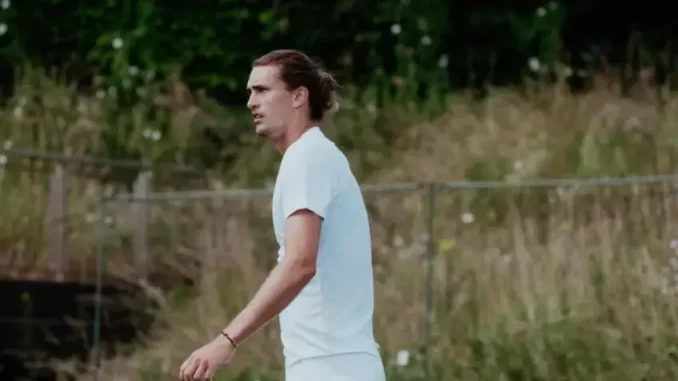
In the sun-drenched courts of Mallorca, a new chapter in professional tennis is unfolding as Alexander Zverev, the world No. 3, trains under the watchful eye of Toni Nadal at the prestigious Rafa Nadal Academy. This collaboration, though not a permanent coaching arrangement, has sparked intrigue across the tennis world, particularly after Toni Nadal, the legendary coach behind 16 of Rafael Nadal’s 22 Grand Slam titles, shared a candid assessment of Zverev’s primary obstacle to achieving tennis immortality: his mental fortitude.
Zverev, a 28-year-old German tennis star, has long been heralded as a prodigy with the potential to dominate the sport. With an Olympic gold medal, two ATP Finals titles, and seven Masters 1000 trophies to his name, his resume is impressive. Yet, the elusive Grand Slam title remains out of reach, with three final appearances—most recently at the 2025 Australian Open and Roland Garros—ending in heartbreak. After a shocking first-round exit at Wimbledon 2025 against Arthur Rinderknech, Zverev’s emotional vulnerability was laid bare. “I feel like I’m very alone on the court,” he confessed in a post-match press conference, his voice heavy with exhaustion. “I’ve been fighting mentally since the Australian Open. I’ve never felt so empty. I lack joy in everything I do, even when I win.”
Toni Nadal, who has been observing Zverev’s career since the German was a teenager, pinpointed this mental fragility as the critical barrier to his success. Reflecting on Zverev’s early potential, Nadal recalled, “The first time I saw Sascha play, he was about 16 years old at the Basel tournament, sparring with my nephew. I called a friend and told him I saw a future world number one.” Yet, despite Zverev’s undeniable talent and physical prowess, Nadal believes his struggles stem not from technical deficiencies but from a lack of resilience under pressure. “The difference between Alexander and players like Djokovic, Federer, or Rafael doesn’t show when everyone is playing well—it shows when they’re playing badly,” Nadal wrote in a poignant column. “The problem for Sascha is when things just aren’t working out. That’s when he usually loses. The other three would often still find a way to win.”
Nadal’s analysis highlights a recurring pattern in Zverev’s career. In the 2025 Roland Garros final against Carlos Alcaraz, Zverev led two sets to one but faltered in the fourth set after a trivial error sparked frustration. “He turned angrily towards his box to complain,” Nadal noted, pointing out how this moment of distraction allowed Alcaraz to seize control, ultimately winning 6-3, 2-6, 5-7, 6-1, 6-2. Similarly, in the 2020 US Open final against Dominic Thiem, Zverev squandered a two-set lead, plagued by errors and double faults. These moments, Nadal argues, underscore Zverev’s “unwillingness to compete and fight when the going gets tough.”
The recent training stint at the Rafa Nadal Academy was initially seen as a potential turning point. Videos of Zverev practicing under Toni’s guidance fueled speculation about a permanent coaching partnership, with some even suggesting Rafael Nadal might take on a mentorship role. However, Toni’s commitments as the academy’s director, an ATP tournament director, and a speaker have ruled out a full-time role. Instead, he has extended an open invitation for Zverev to return to Mallorca for training whenever needed. “I had a great week of training with Toni and Rafa. I’m ready for the United States,” Zverev announced, signaling his focus on the upcoming North American hard-court swing, including the Masters 1000 events in Toronto and Cincinnati, and the US Open starting August 24.
Zverev’s decision to train in Mallorca reflects a desire for change after a challenging season. His early Wimbledon exit and withdrawal from the ATP 250 event in Gstaad for “personal reasons” underscored his need for a mental reset. Fans and analysts have already noted improvements in his game, with some observing him hitting closer to the baseline and flattening out his forehand—adjustments that could address his tendency to retreat defensively in high-stakes moments. “Love seeing him work near the baseline like that,” one fan commented online, while another noted, “He’s taking the ball early with decent pace. His problem isn’t technique; it’s staying aggressive in big matches.”
As Zverev prepares for the US Open, where he reached the final in 2020, the tennis world watches with bated breath. Can he harness the mental toughness that Nadal believes he lacks? With Toni’s insights and the Rafa Nadal Academy’s rigorous environment, Zverev has a unique opportunity to confront his inner demons and redefine his legacy. “I have a great deal of affection for him,” Toni wrote, emphasizing that his critique is not condemnation but a call to action. For Zverev, the path to a Grand Slam title is not just about refining his serve or forehand—it’s about forging a champion’s mindset, one rally at a time.
Leave a Reply